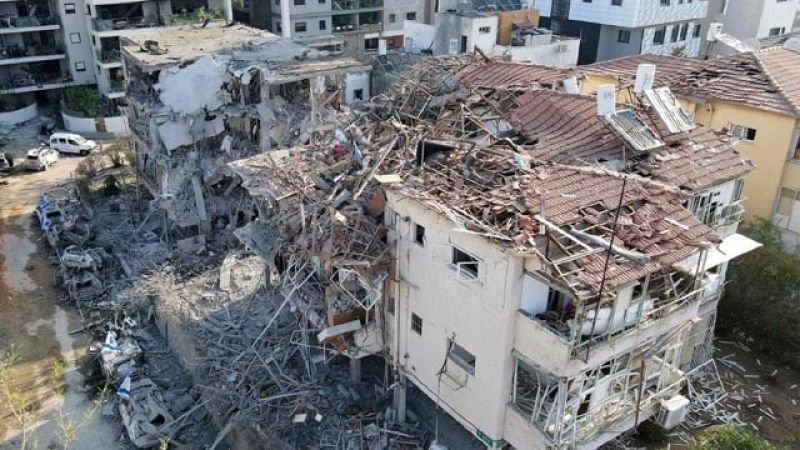- Body of Osman Hadi Returns to Dhaka From Singapore Late |
- Fakhrul condemns attacks on media, calls for unity, justice |
- 2 cops among 4 hurt in clash outside Indian Assit H.C. in Ctg |
- Inqilab Moncho urges people to avoid violence |
- Hadi’s death: Prothom Alo, Daily Star offices set afire |
Europe, Iran seek talks as US weighs joining Israel war

European foreign ministers are set to meet their Iranian counterpart on Friday in Geneva, in a last-ditch diplomatic effort to de-escalate the conflict between Israel and Iran, as US President Donald Trump considers involving the United States in Israel’s military campaign.
The high-stakes meeting comes amid soaring tensions following Israel’s air strikes on Iran, launched a week ago over fears Tehran was nearing nuclear weapon capability. Iran responded with deadly missile attacks, including a strike that hit Israel’s Soroka Hospital, killing and wounding dozens.
Prime Minister Benjamin Netanyahu vowed that Iran would “pay a heavy price,” while Defence Minister Israel Katz issued a chilling warning, saying Supreme Leader Ayatollah Ali Khamenei “can no longer be allowed to exist.”
Iran claimed it was targeting a military and intelligence base, not a civilian facility.
Iranian Foreign Minister Abbas Araghchi will sit down with French, German, British, and EU diplomats to discuss the nuclear programme and ways to avert further escalation.
British Foreign Secretary David Lammy, following talks with US Secretary of State Marco Rubio in Washington, said, “A window now exists to reach a diplomatic solution.” Both sides agreed that Iran must never be allowed to acquire a nuclear weapon.
Netanyahu welcomed the possibility of US involvement, while Russia warned that such a move would be “extremely dangerous.”
The UN Security Council is also scheduled to hold an emergency session on Friday, requested by Iran with backing from Russia, China, and Pakistan.
In Israel, the aftermath of the hospital strike was grim. Soroka Hospital director Shlomi Codish said the facility suffered widespread destruction, with multiple wards completely demolished. Forty people were wounded in the attack.
Ophthalmologist Wasim Hin told reporters, “It’s only doctors and patients here—and look what happened to us.”
The World Health Organization condemned attacks on health facilities as “appalling,” while the UN rights chief accused both sides of treating civilians as “collateral damage.”
Inside Iran, fear is mounting. Civilians fleeing Israeli strikes spoke of terrifying conditions—missile fire, sirens, and food shortages.
“There were sirens all night... missiles with fire tails in the sky,” said Mohammad Hassan, a student who returned to Pakistan from Tehran.
Internet watchdog NetBlocks reported a nationwide internet shutdown in Iran—the most extensive since 2019—cutting off vital communication during crisis.
Any US entry into the war is expected to involve strikes on Iran’s underground nuclear site at Fordo using bunker-busting bombs.
The Wall Street Journal reported that Trump has already approved attack plans but is waiting to see if Iran will abandon its nuclear ambitions. Despite Iran’s denial, White House Press Secretary Karoline Leavitt claimed Tehran is “just weeks” from building a nuclear bomb.
Meanwhile, satellite images showed US military aircraft being removed from a base in Qatar, possibly to reduce vulnerability to Iranian strikes.
Iran confirmed Israeli strikes on its nuclear sites, including the Arak reactor and a uranium enrichment facility in Natanz. Iran’s atomic agency demanded action from the UN nuclear watchdog.
The Revolutionary Guards said over 100 “combat and suicide” drones were launched at Israel in retaliation. Explosions were reported in Tehran, while Israeli authorities said missile attacks had killed 25 people since June 13.
Iran, for its part, reported 224 deaths from Israeli strikes, including military commanders, nuclear scientists, and civilians.
As the conflict deepens, fears of a wider regional war grow, with diplomacy hanging by a thread.

